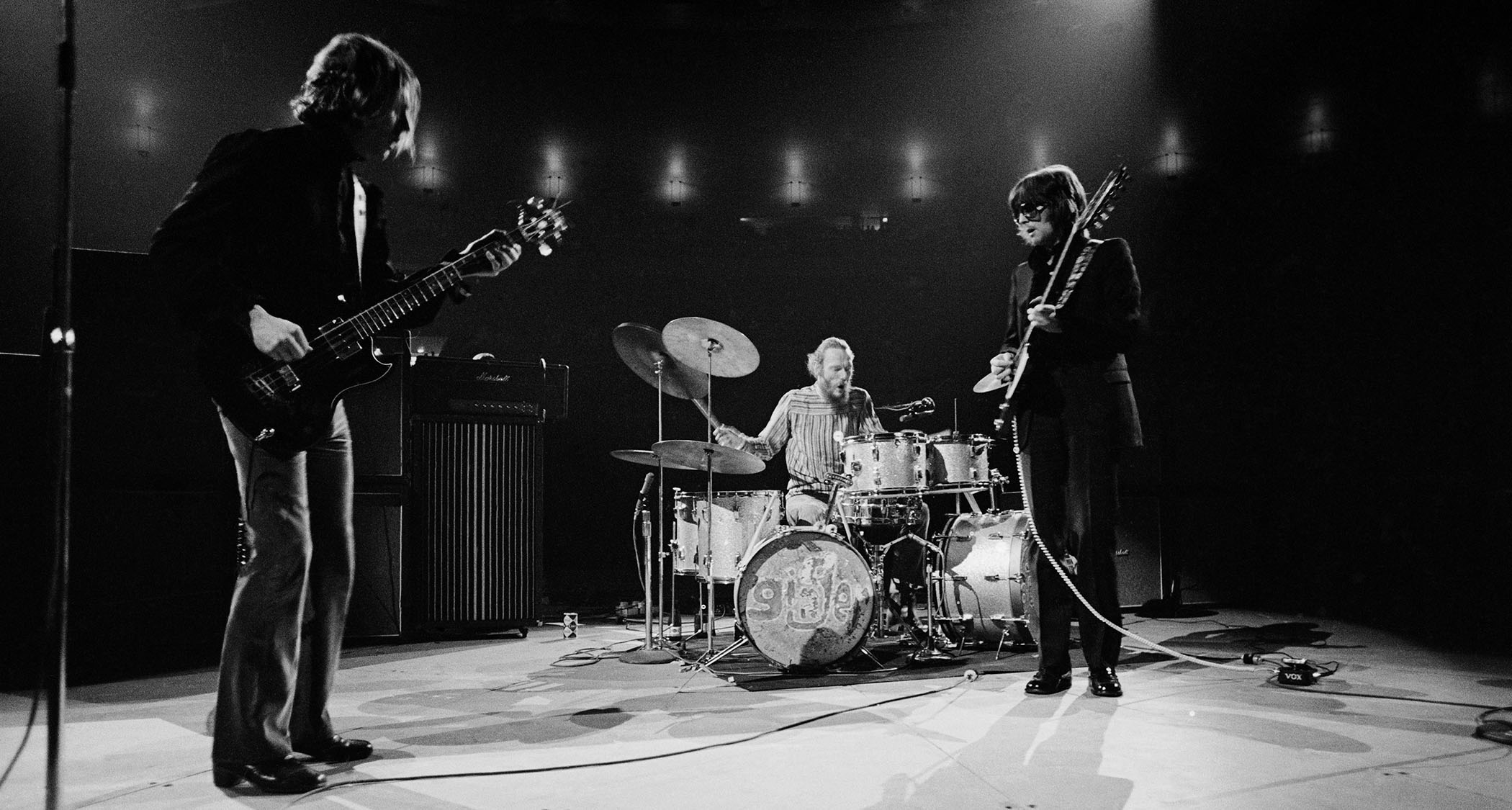“There was no way I was shredding like them – I had to find my space in their universe”: Meet Shubh Saran, the shred chameleon whose jams with Jakub Zytecki and Mark Holcomb helped him find his voice – and left Plini asking, “What the f**k is happening?”
Armed with a Fender John Mayer Strat and a host of diverse musical projects, Saran’s guitar approach draws from blink-182 and Allan Holdsworth in equal measure – and his unique solos have blown his shred peers’ minds

All the latest guitar news, interviews, lessons, reviews, deals and more, direct to your inbox!
You are now subscribed
Your newsletter sign-up was successful
Shubh Saran isn’t a household name, and he’s okay with that. He’s used to being the outsider. Born to parents who worked for the Indian Government meant growing up in four continents and six countries.
“Moving around so much leaves you lacking tradition,” says Saran. “I ended up with this super-random collection of different bits of information that I’m still piecing together. Music was the only constant in my life.”
He had piano lessons in Cairo and guitar lessons in Geneva, but ultimately taught himself via guitar tabs. As a result, the punk of his youth informed his understanding of riff writing, an approach he still swears by today.
“Bands like NOFX and blink-182 would take a shape and just move it up a half step and add an open string, and whichever shape sounded good, that would be the song. I still very much write like that – it’s a really intuitive, organic approach to really maximising the potential of the instrument.”
As an adult, Saran studied modern jazz at Berklee – where, as a punk guy with no theory knowledge, he once again felt like an outsider – before settling in New York, where he also settled on his sound. Atop a foundation of fusion instrumentation and driving rock rhythms – with a penchant for the odd wonky time signature – he sprinkles colourful, Indian-phrased melodies for music which transcends cultures.
Having plied a semi-hollow Hofner to fit in at Berklee, in New York, Saran dusted down his trusty John Mayer Strat, which he’d bought back in 2010. It’s proved to be his glass slipper ever since.
“In New York, you have to play a lot of different styles; sometimes all at the same wedding gig, so a guitar designed for a specific thing holds you back from getting the tones you need. I needed a workhorse and the Strat was right there.
All the latest guitar news, interviews, lessons, reviews, deals and more, direct to your inbox!
“At the time, I had no idea what I was buying, but it turns out that it's an incredible guitar. The wood has aged so well, the neck never moves. It’s the only guitar I’ve played since 2015.”
When I hear melodies in my head, I very much hear them inflected in a way that I think is common for Indian folk
“I love the idea of getting multiple tones out of one guitar, with pickup positions and dialing the tone knobs,” he extends. “I recently put a Seymour Duncan ‘59 humbucker on the bridge, and that has just made it so much heavier, louder, and more versatile.”
Through the many projects he’s involved in, his musical chameleonisms, alongside the versatility of his trusty Strat, are dutifully put to the test. In indie jazz rock troupe Aberdeen, he’s tasked with crafting ambient soundscapes and in prog rock big band The Nychillharmonic, he gets to “lean into the Nine Inch Nails” side of his playing. With the futurist electro-jazz/EDM project, Sungazer, it’s all about technicality and on his solo work it all comes together into one kaleidoscopic melting pot.
Whatever the project, he allows gamakas, an Indian approach to colouring the journey from one note to the next, to naturally infuse the inflections of his ideas.
“I really try not to make things sound more or less Indian for the sake of it, but gamakas and the way I inflect melodies with slides, bends and turns feels very natural to me. When I hear melodies in my head, I very much hear them inflected in a way that I think is common for Indian folk.”

Opening for Plini and Jakub Zytecki on a US tour with Sungazer earlier this year quickly became the most mind-boggling, inspiring and affirming experience of his career so far.
“It was so deeply inspiring in ways that I can't even like describe,” he reflects, “but it was also terrifying. People tell you ‘be the best version of yourself,’ and it's cliché, but it's so fucking true.
“We were jamming Electric Sunrise each night and across the tour they brought out Mark Holcomb from Periphery, Aaron [Marshall] from Intervals, all these ridiculous people. And I had to be on stage with them. There's no way I'm shredding like they are.
When you’re on stage with guitar players who are very different from you and have strengths where you have weaknesses, you’re able to then form your identity based off, ‘If that isn't me, then who am I?’
“So much of our identities we create in opposition to other people,” Saran believes. “When you’re on stage with guitar players who are very different from you and have strengths where you have weaknesses, you’re able to then form your identity based off, ‘If that isn't me, then who am I?’ I very quickly had to find my space in their universe. It was an insane experience.
“My pocket,” he expands, “was much slower but very melodic, very deliberate, with some of my Indian phrasing and Derek Trucks-y slide guitar.
“My approach to fast playing is a more in line with Allan Holdsworth hybrid picking, where, in a four-note pattern, each note is played in a different way: one’s picked, one’s hammered, one’s picked with your fingers. That helped me unlock my speed. I was also playing a lot of chordal solos, which comes from my jazz background.”
Yet, for all Saran’s fear of sharing stages with the Australian, Plini’s respect for the guitarist runs deep.
“You probably can tell from the smile on my face when you said his name, I love that guy,” beams Plini.
He’d come on stage and play the weirdest s**t from other realms of playing that I would never think of
Plini
“It was so sick because he doesn't play like me or Jake. He’d come on stage and play the weirdest shit from other realms of playing that I would never think of. One night, he played this arpeggiated chord thing for three minutes and then there's all of us and the crowd looking at him like, ‘What the fuck is happening?’ That's the main intention when we have guests: to do something that no one else on stage does.”
Saran adds that the Plini tour came at “the perfect time”, coinciding with a new obsession with Meshuggah, and a question as to where to take his solo music next.
“The tour came when I was going through this change, listening to heavier music and reconsidering where I wanted my band to go. When I heard how big and heavy Plini’s sets were, I realized that was the aesthetic I was after, I just couldn’t describe it. Coming from the jazz world, I missed the energy, spontaneity and passion of progressive music.”
A post shared by Shubh Saran (@shubhsaran)
A photo posted by on
“The EP I’m writing is way heavier than anything I’ve ever done before, but I’m not going off script,” he adds. “I’m retaining the Indian and fusion elements of my sound, but juxtaposing that with a new bigness and heaviness. I think Indian melodies will always be a through line for me, whatever I write. It's funny that even a little bit of grace note in a melody can take it to a much more interesting place.”
He hints at a late ’24 release for the EP. Meanwhile, he’s back on tour with Plini, Jakub Zytecki and Sungazer in March – this time grounded by a reaffirmed sense of identity when it comes to shredding alongside some of modern guitar’s finest players.
A freelance writer with a penchant for music that gets weird, Phil is a regular contributor to Prog, Guitar World, and Total Guitar magazines and is especially keen on shining a light on unknown artists. Outside of the journalism realm, you can find him writing angular riffs in progressive metal band, Prognosis, in which he slings an 8-string Strandberg Boden Original, churning that low string through a variety of tunings. He's also a published author and is currently penning his debut novel which chucks fantasy, mythology and humanity into a great big melting pot.


